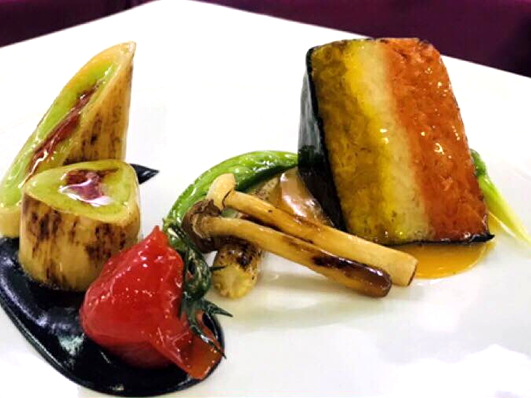Fax: 886-5-226-4559
E-Mail:roseate@wfu.edu.tw
Cht Websiteпјљhttp://hm.wfu.edu.tw/
Eng Websiteпјљhttp://www2.wfu.edu.tw/wp/english/?p=92
In order to coordinate with the government’s policy of developing tourism and hospitality, the goals for this department is to train professionals of tourism and hospitality to meet the needs of training the professionals of hospitality industry.В
The objectives of this department are to coordinate with the policy of the government to facilitate the development of tourism and hospitality, to meet the current and future demands of professionals of tourism and hospitality management, to integrate local industry, and to implement local tourism resource and create new food and beverage art.В
Laying aside the vocational emphasis on the development of basic skills, the curriculum designed for this department is to cultivate local professionals of tourism and hospitality marketing and management through multi-curriculum design and learning with the emphasis on the theoretical learning and practicum training. In order to coordinate with the school policy of “safety”, the core objective for the department fosters “safety” sanitation management of food and beverage with safe and healthy equipments and facilities. This department’s main instructional goal lies in cultivating professional knowledge and essential technical abilities with an international perspective, as well as in instilling values of service and positive work attitudes in future hospitality management personnel.В
- Safety strategy
- With professional skills
- With International perspective
- With highly enthusiastic work attitude
- Utilize diversified scales to evaluate students’ potential and talents.
- Provide diversified clubs for the students to develop inter-relationship skills.
- Integrate local industry to facilitate the development of tourism industry in Chia-yi.
- Investigate the need of professional in the industry to create job opportunity.
- Establish students-oriented curriculum to help the students develop essential technical skills.
- Design department-based curriculum to develop students’ creative marketing and management strategy.
- Implement practicum system to train positive work attitude in the hospitality management industry.
- Implement “Five in one” curriculum design in baking technology: creative class design→ creative teaching→ creative production→ creative marketing→ creative service.
- Integrate visiting enterprise experience and overseas teaching experience to hold seminar, thus students can develop international perspective as well as cultivation of humanity.
In order to implement the core concept of safety of school development project, technical training courses focus on safe sanitation and healthy food manufacture skills.В
This department adheres to the educational philosophy: the theory leads practice and practice informs theory. Thus, the curriculum integrates the resources and experiences from the field and implements practicum system to meet the needs of professionals of the hospitality management industry.В
Emphasis is also placed on foreign language proficiency-professional language as well as speaking, listening, reading, and writing-familiarity with hospitality rules and regulations. Students have to pass language proficiency test and obtain the language proficiency license. Multi-curriculum will contribute to establish students’ international perspective through inviting CEOs from overseas international hotels to lecture in the campus and visiting overseas hotels and restaurants.В
To provide professional service determines the existence of the hotels and restaurants. The main focus for the curriculum lies on training professionals with highly enthusiastic work attitude.
Curriculum design:


